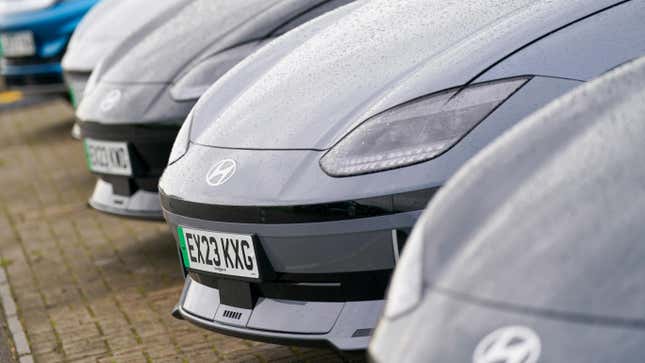
Sales of new electric vehicles fell sharply in September compared to the same period last year in the United Kingdom, according to the BBC. The Society of Motor Manufacturers and Traders reportedly said sales to private buyers fell by 14 percent since last year. However, because of fleet sales, overall registrations of EVs actually rose nearly 19 percent.
The article points out that the car market as a whole showed some fairly strong growth in September, but sales are still below pre-pandemic levels. Overall, new car registrations grew by 21 percent last month compared to the same period last year in the UK. The BBC reports it was the 14th consecutive month of growth, and it shows that the industry to recovering fairly well following the Covid-19 pandemic and subsequent parts shortages.
For company car drivers – something far more common in the UK – electric cars come with a far lower tax bill than internal combustion-powered vehicles. That’s where the fleet sales are primarily coming from. However, there aren’t as many benefits for private buyers.
The Plug-in Car Grant – which you can think of as the UK’s EV tax break – was canceled last year. On top of that, an exemption from vehicle excise duty (a tax) for electric vehicles is set to end in 2025, and it’s got manufacturers worried.
The British government is reportedly moving ahead with its zero-emission vehicle mandate, but it has pushed back the ban on new gas and diesel cars from 2030 to 2035. Under this mandate, the BBC says eight out of 10 cars sold by manufacturers will have to be battery or hydrogen-powered by 2030.
“With tougher EV targets for manufacturers coming into force next year, we need to accelerate the transition, encouraging all motorists to make the switch,” Mike Hawes, SMMT’s chief executive told BBC. “This means adding carrots to the stick – creating private purchase incentives aligned with business benefits.”

